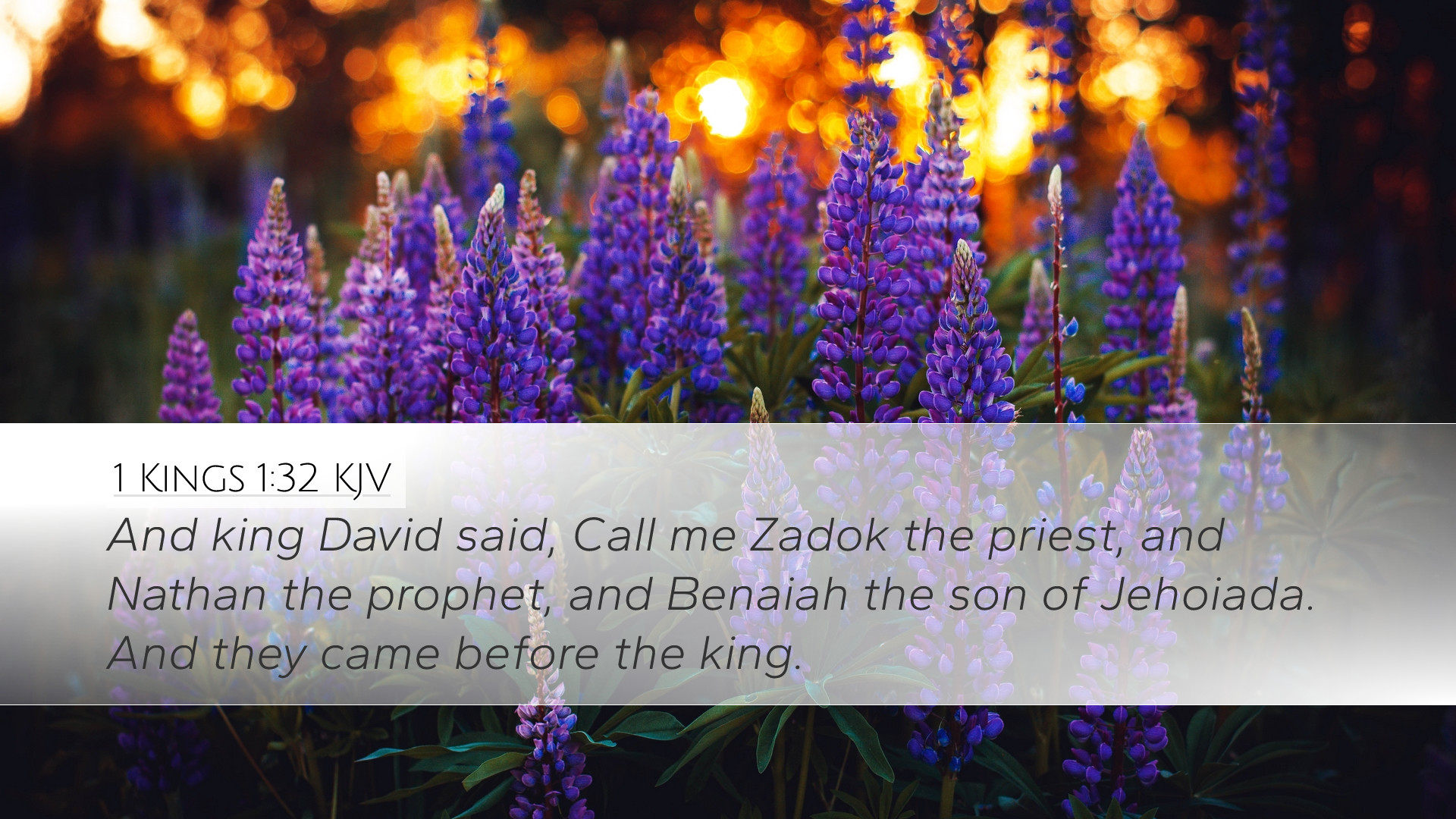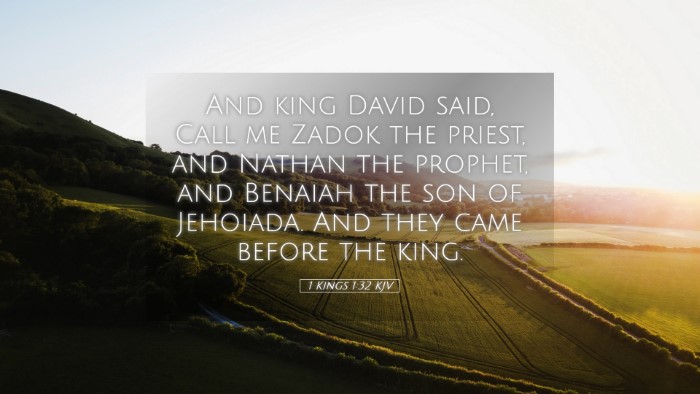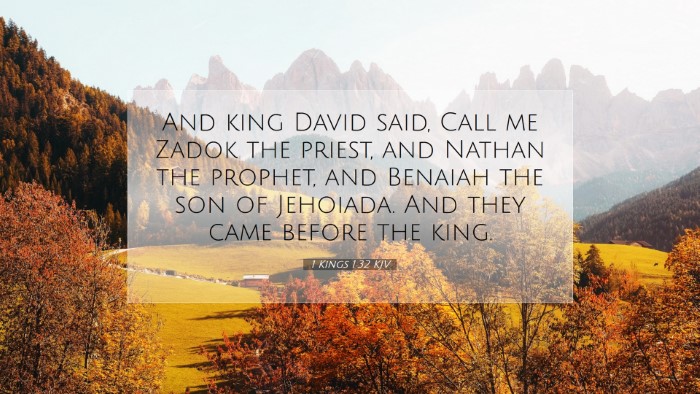Commentary on 1 Kings 1:32
Verse Context:
1 Kings 1:32 reads: "And King David said, Call me Zadok the priest, and Nathan the prophet, and Benaiah the son of Jehoiada. And they came before the king." This verse sets the stage for a significant moment in the narrative of the transition of power in Israel.
Introduction
This passage not only depicts the urgency of the situation surrounding King David but also highlights the roles of key figures in Israel's religious and political life. Zadok the priest, Nathan the prophet, and Benaiah are instrumental in the unfolding events that confirm Solomon as the rightful successor to David's throne.
Insights from Public Domain Commentaries
Matthew Henry's Commentary
Matthew Henry emphasizes the importance of the priesthood and prophecy in the governance of Israel. He observes that David's call for Zadok and Nathan signifies a return to godly leadership, essential for establishing God's chosen king. The involvement of these spiritual leaders signifies that Solomon's ascendancy is not merely a political maneuver but divinely sanctioned.
- The Role of Zadok: Zadok, as a priest, plays a critical role not only in the coronation of Solomon but in maintaining the religious integrity of the nation. Henry notes that Zadok's loyalty to David and adherence to God's commands are paramount.
- The Importance of Nathan: Nathan's prophetic voice offers necessary guidance. Henry highlights that Nathan previously warned David about the consequences of his sin with Bathsheba, illustrating the vital role of prophecy in accountability.
Albert Barnes' Commentary
Albert Barnes provides an analytical approach to the text by focusing on the historical and theological implications of this assembly. He points out that David's advanced age and declining strength necessitate that he act decisively to prevent usurpation of the throne by Adonijah.
- Decisions Under Pressure: Barnes notes that these moments of crisis reveal the character of leaders. David's gathering of trusted advisors reinforces the idea that wise counsel is essential for righteous leadership.
- Validating Solomon's Claim: Barnes argues that David’s actions are not just about familial succession; they underline God's covenant promise regarding Solomon. This scene encapsulates the intersection of divine sovereignty and human agency.
Adam Clarke's Commentary
Adam Clarke provides a more detailed exegesis, examining the significance of each character involved in the narrative. He discusses the implications of a king consulting religious leaders, illustrating the integration of spiritual authority and political leadership.
- Significance of Benaiah: Clarke highlights Benaiah, whose military prowess supports Solomon's claim. This suggests that strong leadership must be supported by military might, further emphasizing the multifaceted nature of governance.
- Spiritual vs. Temporal Power: Clarke reflects on the balance between kingdom authority and the role of spiritual leaders, suggesting that true kingship aligns with God’s will, as demonstrated by the collaborative effort to crown Solomon.
Theological Themes
This verse encapsulates several vital theological themes:
- The Sovereignty of God: The passage underscores God's sovereign plan in appointing leaders over Israel. The gathering of these leaders indicates God's ongoing guidance in Israel's history.
- Leadership and Accountability: The roles of Zadok and Nathan exemplify how leaders are to be accountable to God and his ordained order. In a broader context, it sets a precedent for future generations regarding the importance of seeking divine insight in leadership decisions.
Practical Applications
For pastors, students, and scholars, several practical applications arise from this passage:
- Importance of Wise Counsel: The gathering of David's advisors reminds church leaders to seek counsel from wise and godly individuals, embodying humility and recognizing the need for support.
- Divine Authority in Leadership: Leaders are called to ensure their actions align with God's will. This demands a commitment to prayer and discernment in decision-making.
- Role of the Holy Spirit: Just as Nathan served as a prophet to David, contemporary leaders must cultivate sensitivity to the Holy Spirit's leading in both personal and communal contexts.
Conclusion
1 Kings 1:32 serves as a poignant reminder of the intertwining of divine authority and human governance, illustrating the necessity of godly counsel in the face of crisis. The characters' roles highlight the importance of adhering to God's plans as expressed through prophetic guidance and priestly leadership. For modern leaders, this passage offers valuable lessons in integrity, accountability, and the pursuit of divine wisdom in all decisions.


